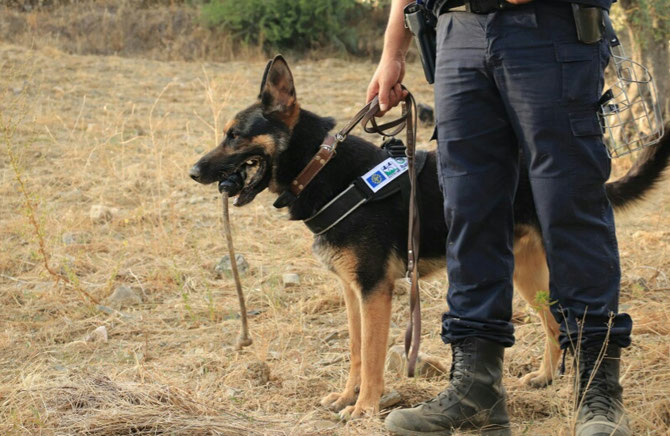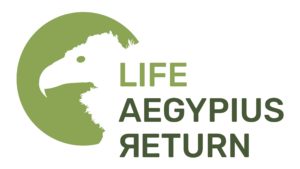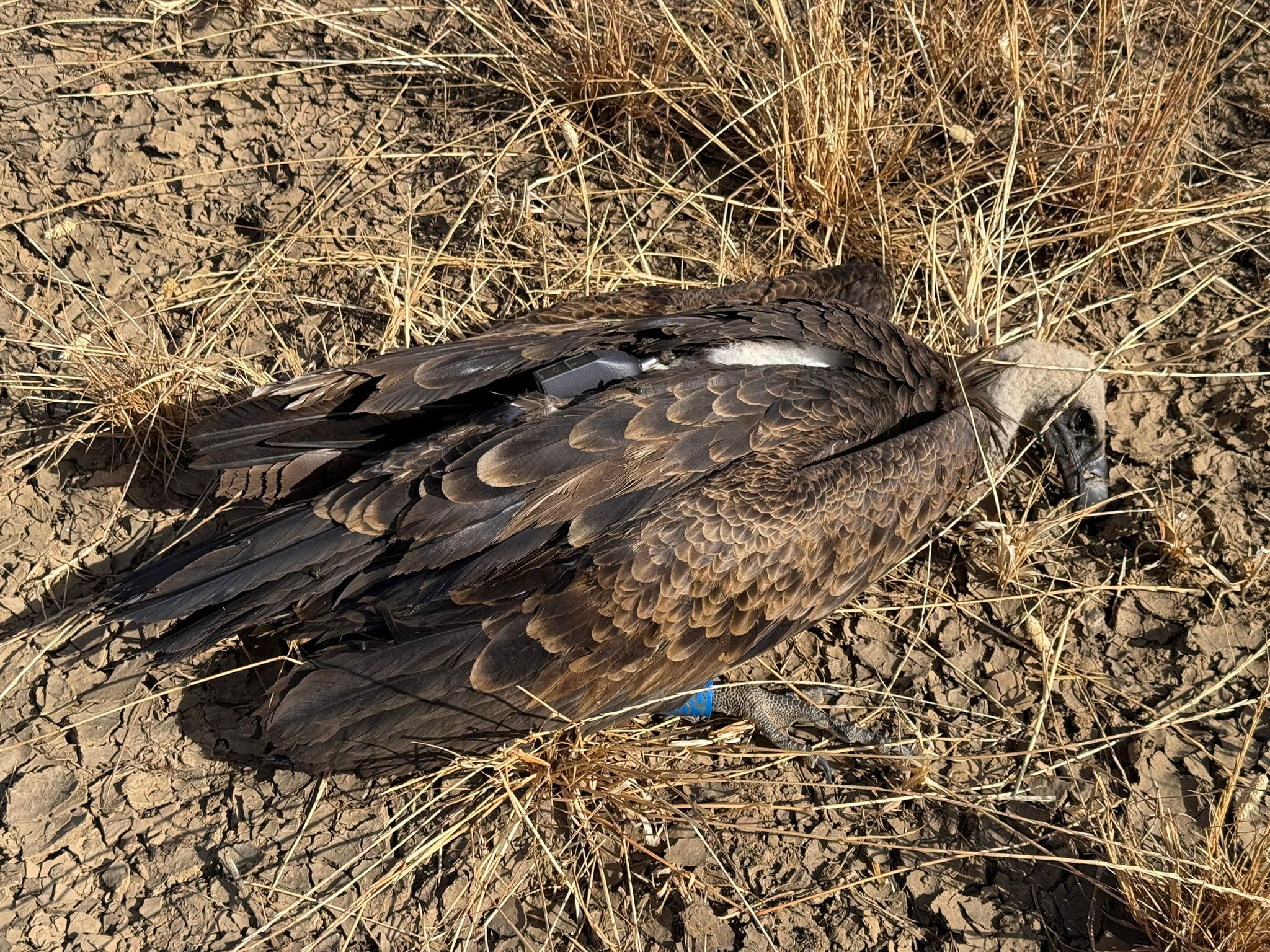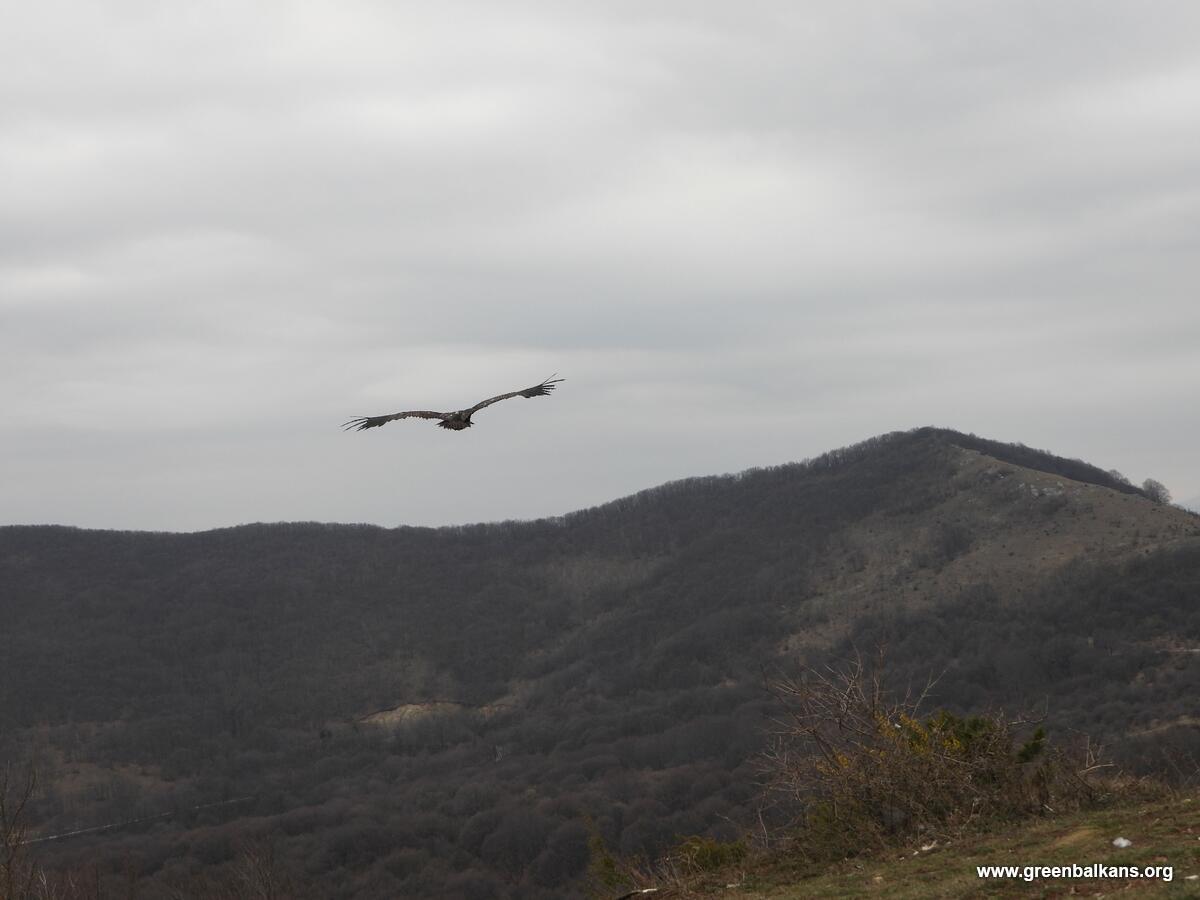In Portugal, wildlife rescue is usually ensured by a special department (SEPNA) within the police GNR (Guarda Nacional Republicana). Forty-nine police officers from mainland Portugal and the islands are receiving training to join this special force. The LIFE Aegypius Return project has been one of the key components of their training to ensure they can handle and rescue wildlife properly, including Cinereous Vultures.

49 police officers trained in rescuing and handling Cinereous Vultures
GNR, also a LIFE Aegypius Return project partner, invited us to prepare a session at the SEPNA (Serviço de Proteção da Natureza e Ambiente) training. We secured a module on the importance of careful rescue and handling of wild animals, particularly Cinereous Vultures (Aegypius monachus), which are still relatively rare and, thus, a priority species in terms of conservation.
This intervention had the valuable collaboration of Verónica Bogalho and Eva Palma, experts from LxCRAS – Lisbon Wildlife Recovery Centre, who explained the work of Wildlife Recovery Centres, their network collaboration with key institutions such as GNR or ICNF (Institute for Nature and Forest Conservation).



Capacity building and collaboration within the LIFE Aegypius Return Project
Milene Matos, LIFE Aegypius Return project coordinator at VCF, presented the project, emphasising the fundamental collaboration of GNR in the project’s technical actions and citizen awareness. It was also explained how, in the case of highly threatened species, the rescue or rehabilitation of a single individual can significantly impact the success of the species’ recovery, potentially contributing to population reproduction and resilience.
In Portugal, alongside Rangers (ICNF), GNR/SEPNA police officers are responsible for collecting wild animals detected in danger or weakened and directing them to Wildlife Recovery Centres. With this action, a total of 184 GNR police officers have been trained for a more effective rescue response. Last summer, with the collaboration of several wildlife rescue centres, 135 soldiers participated in similar training actions in various regions where Cinereous Vultures are most likely to occur.


A canine unit in the fight against poison
Within the framework of the LIFE Aegypius Return project, GNR is responsible for combating environmental crime and reducing threats to Cinereous Vultures, particularly regarding nest disturbance and anti-poison efforts. The project will strengthen GNR’s technical capabilities by establishing two new anti-poisoning dog units and help reinforce physical facilities for the detection of poisoning cases.

About the LIFE Aegypius Return project

The LIFE Aegypius Return project aims to consolidate and accelerate the return of the Cinereous Vulture in Portugal and western Spain by improving habitat and food availability and minimising the main threats. The project team will implement specific conservation actions in ten Natura 2000 areas along almost the entire border between Portugal and Spain. It is a 3.7 million project, co-financed by the European Union’s LIFE Programme, whose success relies on the involvement of all relevant stakeholders and the extensive collaboration of the leading project partner, the Vulture Conservation Foundation (VCF), with all local partners: Palombar – Conservação da Natureza e do Património Rural, Herdade da Contenda, Sociedade Portuguesa para o Estudo das Aves (SPEA), Liga para a Protecção da Natureza (LPN), Associação Transumância e Natureza (ATN), Fundación Naturaleza y Hombre (FNHY), Guarda Nacional Republicana (GNR) and Associação Nacional de Proprietários Rurais Gestão Cinegética e Biodiversidade (APNC).




